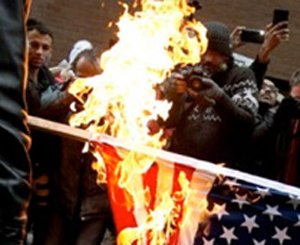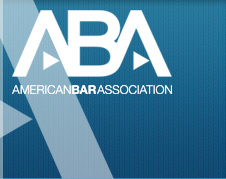Flag Burning

“Nobody should be allowed to burn the American flag – if they do, there must be consequences – perhaps loss of citizenship or a year in jail!” then President-elect Trump tweeted in mid-November 2016.
Can a person be punished for burning or desecrating the American flag? If they own the flag, they cannot, according to two Supreme Court decisions.
First in a historic 1989 decision, Texas v. Johnson, and then in a follow-up ruling a year later, the U.S. Supreme Court expanded the First Amendment’s protection of free expression to cover the burning and desecration of Old Glory.
The controversy over flag burning goes back nearly a half century, when Congress in 1968 approved the Federal Flag Desecration Law after a Vietnam War protest. The law made it illegal to “knowingly” cast “contempt” upon “any flag of the United States by publicly mutilating, defacing, defiling, burning or trampling upon it.”
The first judicial step toward the 1989 Supreme Court decision came in 1974, when the high court said in Spence v. Washington that a person could not be convicted for using tape to put a peace sign on an American flag. The Texas case arose when Gregory Lee Johnson burned a flag in a protest outside the City Hall building in Dallas during the 1984 Republican National Convention there. Police arrested Johnson and convicted him of breaking a Texas state law that essentially prohibited desecration of the flag of the United States.
Johnson was sentenced to a year in prison and ordered to pay a $2,000 fine. On appeal, the Texas Court of Criminal Appeals in 1988 stated that Johnson’s speech was symbolic and ruled in his favor. The Supreme Court accepted the case, and in a 5-4 majority ruled in its 1989 decision that flag burning was symbolic speech political in nature and could be expressed even at the affront of those who disagreed.
“The hard fact is that sometimes we must make decisions we do not like,” wrote Justice Anthony Kennedy, new to the bench at the time, in a critical concurring opinion. “We make them because they are right, right in the sense that the law and the Constitution, as we see them, compel the result. And so great is our commitment to the process that, except in the rare case, we do not pause to express distaste for the result, perhaps for fear of undermining a valued principle that dictates the decision. This is one of those rare cases.”
Congress then passed an anti-flag burning law called the Flag Protection Act of 1989, but the court struck that law down as well in 1990.
Posted 8/17/2017
Other Fact-Checked Subjects:
- Hate Speech
- Flag Burning
- Pardons
- Affirmative Action
- Free Speech
- Ninth Circuit
- Forced Evacuation
- Executive Orders
- National Anthem Controversy
- Gun Laws
- Broadcast Licenses
- Revoking Visas
- Non-Citizen Terrorist Cases
- Religious Displays
- Congressional Seating
- Sexual Harassment
- Revoking Citizenship
- Influencing U.S. Elections
- Legal View of Treason
- Chain Migration
- Guns and Courts
- Students' Right to Protest
- Attorney-Client Privilege
- Recusal
- The President and the Law
- Immigrant Rights
- Revoking Security Clearances
- Confidentiality Agreements
- Resigned or Fired
- Deadly Force
- Birthright Citizenship
- Press Credentials
- Troops at the Border
- Election Re-Vote
- Emergency Powers
- Immigration Law
- Contempt of Congress
- Boycotting 2020 Census
- Electoral College
- Impeachment
- Separation of Powers
- Equal Rights Amendment
- Whistleblower Protection
- Pandemic Authority
- State Powers
- Employer Limits
- Police Immunity
- Federal Forces
- Hatch Act
- Attorney General Authority
- Frivolous Lawsuits
- Social Media and the First Amendment
- D.C. Statehood
- Executive Privilege
- Russian Sanctions
- Law of Genocide
- Stare Decisis
- Declassified




